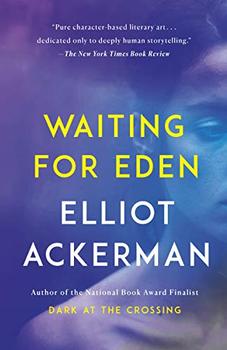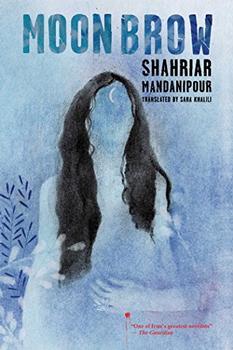Summary | Excerpt | Reading Guide | Reviews | Beyond the book | Read-Alikes | Genres & Themes | Author Bio

A Novel
by Kevin PowersKevin Powers' first novel, The Yellow Birds, is a coming-of-age drama set during the Iraq War. The first-person account is narrated by John Bartle, an army private stationed in Al Tafar, Iraq, at the height of hostilities in September 2004. In basic training the 21-year-old Bartle is assigned to look after Private Daniel Murphy, then 17, promising both his sergeant and Murphy's mother that he would bring the young man home safely. We learn very early on that Bartle has failed to accomplish this goal, and feels some responsibility - and perhaps culpability - for Murphy's death. The narrative alternates between events leading up to Murphy's demise and Bartle's attempt to come to terms with it and with his military experiences in general after he is discharged back to his home in Virginia.
The Yellow Birds isn't a feel-good read. The title comes from an army call-and-response marching cadence:
A yellow bird
With a yellow bill
Landed on
My window sill
I lured him in
With a piece of bread
And then I smashed
His f***ing head
This should provide Powers' readers fair warning that what follows will be brutal and bloody; the "yellow bird" is a metaphor for the soldiers, which the war will inevitably destroy in one way or another. Nearly every page in the book's Iraq sections depicts a near-surreal scene of death and destruction. The author's writing is incredibly descriptive - an odd combination of violence and poetry (see Beyond the Book) that work in concert to paint a picture that is at once disturbing and beautiful.
I pushed my chest off the rooftop and crested the low wall, trying to scan the few acres of the world for which we were responsible. The squat buildings beyond the field undulated through the tinny green of my scope. Bodies were scattered about from the past four days of fighting in the open space between our positions and the rest of Al Tafar. They lay in the dust, broken and shattered and bent, their white shifts gone dark with blood. A few smoldered among the junipers and spare tufts of grass, and there was a heady mix of carbon and bolt oil and their bodies burning in the newly crisp air of morning.
Powers, an Iraq war vet, has said that while he didn't experience the exact events in the book himself, he was striving to portray an "emotional truth" behind what it's like to go to war - and, more important, to return from it. He has accomplished this magnificently well, giving vent to his character's pain and anger in a way that feels utterly honest and personal. Bartle talks about feeling like an outsider even in his hometown, afraid to meet friends because he doesn't want to them to ask, "Hey, how are you?" -
I'd answer "I feel like I'm being eaten from the inside out and I can't tell anyone what's going on because everyone is so grateful to me all the time and I'll feel like I'm ungrateful or something. Or like I'll give away that I don't deserve anyone's gratitude and really they should all hate me for what I've done but everyone loves me for it and it's driving me crazy."
The raw violence and searing emotional content make reading this book an intense experience. I was profoundly affected by it, although "enjoy" is certainly not the word I'd use to describe my feelings for the book. There is no happy ending here, no light at the end of the tunnel, only images of shattered lives. And yet I do recommend the novel; I can't think of a book in my experience that has elicited such an overwhelmingly visceral reaction, and certainly none that have had such an enormous impact on my view of the effects of war. It's one of those once-in-a-lifetime reading encounters that I am certain will remain a permanent part of my consciousness.
Shortlisted for the National Book Award, The Yellow Birds has been deservedly compared to war classics such as Tim O'Brien's The Things They Carried and Eric Maria Remarque's All Quiet on the Western Front. In addition to simply being well-written, these books share a view of war that is unvarnished by the myth that battle is noble and that fighting for one's country is a glamorous undertaking. These books strip away the Hollywood hype and lead us one step closer to understanding the true nature and cost of conflict. Those seeking an answer to the question, "What's it like to go to war?" could do no better than to pick up a copy of The Yellow Birds.
To see Kevin Powers discuss his book, click on the video below:
![]() This review was originally published in The BookBrowse Review in November 2012, and has been updated for the
May 2013 edition.
Click here to go to this issue.
This review was originally published in The BookBrowse Review in November 2012, and has been updated for the
May 2013 edition.
Click here to go to this issue.

If you liked The Yellow Birds, try these:

by Elliot Ackerman
Published 2019
From the National Book Award finalist, a breathtakingly spare and shattering new novel that traces the intersection of three star-crossed lives.

by Sara Khalili, Shahriar Mandanipour
Published 2018
From "one of Iran's most important living fiction writers" (The Guardian) comes a fantastically imaginative story of love and war narrated by two angel scribes perched on the shoulders of a shell-shocked Iranian soldier who's searching for the mysterious woman haunting his dreams.
Your guide toexceptional books
BookBrowse seeks out and recommends the best in contemporary fiction and nonfiction—books that not only engage and entertain but also deepen our understanding of ourselves and the world around us.